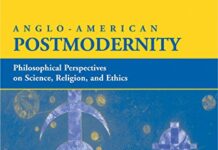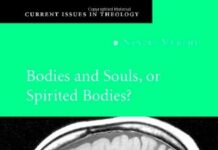
Ebook Info
- Published: 1996
- Number of pages: 180 pages
- Format: PDF
- File Size: 8.85 MB
- Authors: Nancey Murphy
Description
American Protestant Christianity is often described as a two-party system divided into liberals and conservatives. This book clarifies differences between the intellectual positions of these two groups by advancing the thesis that the philosophy of the modern period is largely responsible for the polarity of Protestant Christian thought.A second thesis is that the modern philosophical positions driving the division between liberals and conservatives have themselves been called into question. It therefore becomes opportune to ask how theology ought to be done in a postmodern era, and to envision a rapprochement between theologians of the left and right.A concluding chapter speculates specifically on the era now dawning and the likelihood that the compulsion to separate the spectrum into two distinct camps will be precluded by the coexistence of a wide range of theological positions from left to right.Nancey C. Murphy is Associate Professor of Christian Philosophy at Fuller Theological Seminary, Pasadena, and the author of Reasoning and Rhetoric in Religion, also published by Trinity Press. Her book Theology in the Age of Scientific Reasoning earned the American Academy of Religion’s Award for Excellence.
User’s Reviews
Editorial Reviews: Review “Beyond Liberalism and Fundamentalism placed 8th in the “Top 25 list” of the 1997 Christianity Today Book Awards” — Your Church (The Catholic Historical Review)”This is a helpful book. Murphy writes clearly and summarizes a great deal of material…(a) bold effort to survey so much of where Christian theology has been and make proposals for where it should go next.” —William C. Placher, Theology Today (Theology Today)”This book…will be of particular in seminary theology courses.” — Religious Studies Review, July 1997 (Religious Studies Review)”The central question asked by Nancey Murphy’s book is this: Why is it that conservative Christian theologians and liberal Christian theologians are so far apart that we can say they operate out of incompatible paradigms? Murphy offers a descriptive answer to this question along with a prescriptive recommendation for connecting the right and left wings together into one body.” —Dialog, Fall 1997 (Dialog: A Journal Of Theology) From the Back Cover This book clarifies differences between the intellectual positions of the so-called two-party system of liberals and conservatives in American Protestant Christianity. Nancey Murphy advances the thesis that the philosophy of the modern period is largely responsible for the polarity of Protestant Christian thought. A second thesis is that the modern philosophical positions driving the division between liberals and conservatives have themselves been called into question. This, then, presents the opportunity to ask how theology ought to be done in a postmodern era and to envision a rapprochement between theologians of the left and right. The book concludes by speculating on the future and the likelihood that the compulsion to separate into two distinct camps will be precluded by the coexistence of a wide range of theological positions from left to right. About the Author Nancey C. Murphy is Associate Professor of Christian Philosophy at Fuller Theological Seminary, Pasadena, and the author of Reasoning and Rhetoric in Religion, also published by Trinity Press. Her book Theology in the Age of Scientific Reasoning earned the American Academy of Religion’s Award for Excellence. Read more
Reviews from Amazon users which were colected at the time this book was published on the website:
⭐In this fascinating and well organized study of how modern and postmodern philosophy shapes the theological agenda, Nancey Murphy sets out to explain and offer a new direction for the theological divide between conservatives and liberals.Appropriate but not surprisingly, Murphy begins her study in part one by covering what has often been called, the Cartesian tragedy. Descartes’ skeptical quest for “absolute” certainty is clearly elucidated in that the philosophical foundational approach for knowledge eventually defined the nature of theological inquiry in the modern period.However, this modern foundational approach, Murphy argues, leads to two competing positions on a theological continuum: the first is that conservatives rely on Scripture as their foundation, and the second is liberalisms’ reliance on experience. At this point, Murphy’s analysis is very good in that she demonstrates that both theological camps are left petulantly wanting due to the fact that they are both stuck in the modern foundationalist mindset. Additionally, her critique of this foundationalism leads her to articulate the two epistemological outcomes of the liberal “inside-out” and the conservative “outside-in” approach to theological method.But where Murphy is excellent at tracing the history of these concepts, one wonders why she does not find it necessary to engage Karl Barth’s perspective on the issue of theological liberalism and its Schleiermachian roots. A mere affirmation of his thought is in fact referenced as a good reason to reject experiential foundationalism, but it seems that a little more interaction of his thought could help Murphy’s overall point.Murphy’s explanation of the nature of religious language and how it is used is also helpful for her overall thesis. She does a particularly good job at showing how language relates to the theological landscape of conservativism and liberalism. In fact, this is accomplished by a simple and yet helpful chart on page 37.The second quality of Murphy’s elucidation of religious language is in her description of the so-called, Vienna Circle. The section on Ayer is especially important due to his classifications of language for the ever dying logical positivist movement. Significantly, his three types of sentences are (1) “empirically meaningful,” (2) tautologous, and (3) emotive. This point of bringing up Ayer’s logical positivism is especially important to Murphy’s later points of expressivist/liberal and propositional/conservative theories of language.After making her points about conservative and liberal strands of religious language, Murphy moves on to the controversial topic of gender language when referring to God. The attention that Murphy includes on gender in this section is lacking, however. She glosses over the important nature of this topic by painting Bloesch as a propositionalist whom deviates from the biblical content of feminine language for God. At this point, Murphy’s perspective is avoiding a much more complex subject with respect to the nature of language. One could argue that the nature of language as it relates to the “gender” of God is beyond a mere two and a half pages of content. Furthermore, to implicitly assert that Bloesch is even close to being a propositional foundationalist (in the fundamentalist sense) is at best unclear and at worst misrepresentative. Thus, this section is underdeveloped.Murphy’s overall point in the first part of the book is to demonstrate that “modern philosophy has been largely responsible for bifurcating Christian theology…” into two competing liberal and conservative strands. Murphy’s perspective and attempt at showing this is effective for the reader. But within the second part of her book it seems that she delves even deeper into the subject of philosophical and theological methodology.The explanation of postmodernity in its Anglo-American context with the help of Popper and Quine is compelling for Murphy’s elucidation of epistemological holism. However, within this epistemological holism, which apparently rejects the perspective of foundationalism, Murphy points out the main dilemma for the holistic enterprise–relativism. However, Murphy argues that with the help of MacIntyre’s Thomistic and Augustinian examples, the tenableness of relativism seems to be less of a problem for the holist. Murphy’s analysis and perspective in this section of her work is convincing, but there seems to be two referential perspectives that may help to make her overall thesis a little stronger.First, in her section about the problems with foundationalism, Murphy states a problem with the nature of philosophical justification as it relates to epistemology. My reservation, however, in this section is that she does not reference Alvin Plantinga’s very important epistemological work on the nature of warrant and justification. Thus, the important concepts that Plantinga puts forth in his Warrant series (i.e., Current Debate and Proper Function; Warranted Christian Belief was not published yet) on the nature of the JTB theory could greatly enhance the roundedness of her position.Second, at the end of her section on “Alasdair MacIntyre and Theological Method” (pp. 105-06), there seems to be a similarity, here, to the position that Karl Barth takes on the dynamic relationship between scriptural authority as well as the importance of experience. Barth’s triadic theological method of revelation as the Word of God–Jesus Christ–as witnessed to by Scripture and proclaimed (experientially and subjectively) through the community of believers would be beneficial to propose in addition to MacIntyre’s position. After all, the dichotomy between scripture and experience was something Barth had to seriously consider in his modernistic and theologically liberal context.The third point refers to Murphy’s analysis of the “Problems with Foundationalism” (93). In this section she makes the comment about how conservative theologians were “forced” to admit the errancy of the biblical text, but she does not provide any sources or footnotes to clarify the nature of this assertion. Instead, Murphy includes the autograph inerrancy perspective to make her point, which is also a fair one.Chapters 5-6 and the concluding remarks are clearly the best and most thoughtful of Murphy’s book. In addition, one can see Murphy’s development of holistic (and physicalist) epistemology and how it influences theology in chapter 6, which obviously had an impact on her recently published book, Bodies and Souls, or Spirited Bodies? Nevertheless, the reader of Murphy recognizes at this point that she is not flippantly suggesting a “paradigm/web” shift in theological method, but describing it as a necessary action for the progression of theology. Whether Murphy’s analysis of modernistic philosophy as limiting the theological enterprise in the way she describes, only history will tell, but her perspectives must be seriously considered if theologians are to advance beyond the various nonviable foundations of modernism.As it stands, Murphy’s book makes a compelling case that theology and the theological craft cannot be limited to the modernistic philosophical landscape, and in this she seems to be correct. She also argues that the either/or perception of Christian theology as it relates to the conservative and liberal divide is no longer a reasonable option in light of postmodern developments in philosophy. One can hope that her optimism about the future is indeed warranted and will come to fruition.
⭐I found Nancey Murphy’s book to be enlightening, especially in its analysis of Christian theology within modernity — the first half of the book. She does an excellent job of summarizing the two broad thrusts of the theology which some of us have been reading for the last 40 years. The theologians she has selected to use as illustrative ideal types are well chosen and include substantial thinkers on both sides of the divide; she has not selected ringers but thinkers with substance. (In fact, my appreciation for Alister McGrath –a theologian I would not normally identify with– has grown significantly as a result of her use of him as an ideal type.)So I decided to try an experiment. I am the pastor of a highly intelligent, well-read congregation. I decided to use Murphy’s book as the basis for a local church class on the topic: Why Conservative and Liberal Christians Think Differently. I invited students to purchase and read the book.I then set out to summarize her analysis and argument chapter by chapter and ask the class the question: Do the observations Murphy makes about the way fundamentalist/evangelical and liberal theologians think differently also apply to ordinary Christians in our churches? Does her analysis of theology help us understand the difference between us and our family members, co-workers and friends who are Christians like us but who seem to think so very differently about so many things?Not all the students in my class find her writing easy going, but the basic concepts of her analysis are resulting in profound and significant conversation. While the students in my class are also interested in psychological and personality aspects of the difference between conservative and liberal Christians, and Murphy’s book is strictly about ideas, I believe it has been very helpful in beginning to help us grasp some of the differences between ordinary, non-academic conservative and liberal Christians.My church is in many ways a liberal church which also happens to have a deep appreciation for spirituality, prayer, and Scripture. We certainly do not have a problem critiquing the assumptions of fundamentalist/evangelical Christians about revelation, the meaning of religious language, and providence. One of the most helpful aspects of wrestling with Murphy’s book is that it seems to help us sense some of the inadequacies of the liberal way of thinking that is our bias. It is certainly not a purely comfortable read for us.I am not sure, however, that it leaves us with as much of a sense of hope for the future as Murphy articulates. For example, the most difficult issue currently dividing conservatives and liberals within our denomination is about the full inclusion or marginalization of lesbian and gay Christians. Is it okay to be gay or does a “biblical” understanding of a male/female order of creation make heterosexuality the only acceptable status? Murphy’s analysis of theology within modernity helps clarify some of the possible reasons Christians think differently about this matter, but I am not sure her hopes for post-modernity shed much light on how new philosophical assumptions will get us past this … or even how it will help get us past the division about inclusive language that she uses as a case study. Transcending the divide between science and traditional Christian understandings of providence may be easier, but other issues still seem to be quagmires to us. Perhaps we are just still too modern!At any rate, I am very grateful for this work. Anything that helps us to understand our own assumptions and the assumptions of those with whom we seem to so severely disagree is precious.
Keywords
Free Download Beyond Liberalism and Fundamentalism: How Modern and Postmodern Philosophy Set the Theological Agenda (Rockwell Lecture) in PDF format
Beyond Liberalism and Fundamentalism: How Modern and Postmodern Philosophy Set the Theological Agenda (Rockwell Lecture) PDF Free Download
Download Beyond Liberalism and Fundamentalism: How Modern and Postmodern Philosophy Set the Theological Agenda (Rockwell Lecture) 1996 PDF Free
Beyond Liberalism and Fundamentalism: How Modern and Postmodern Philosophy Set the Theological Agenda (Rockwell Lecture) 1996 PDF Free Download
Download Beyond Liberalism and Fundamentalism: How Modern and Postmodern Philosophy Set the Theological Agenda (Rockwell Lecture) PDF
Free Download Ebook Beyond Liberalism and Fundamentalism: How Modern and Postmodern Philosophy Set the Theological Agenda (Rockwell Lecture)


